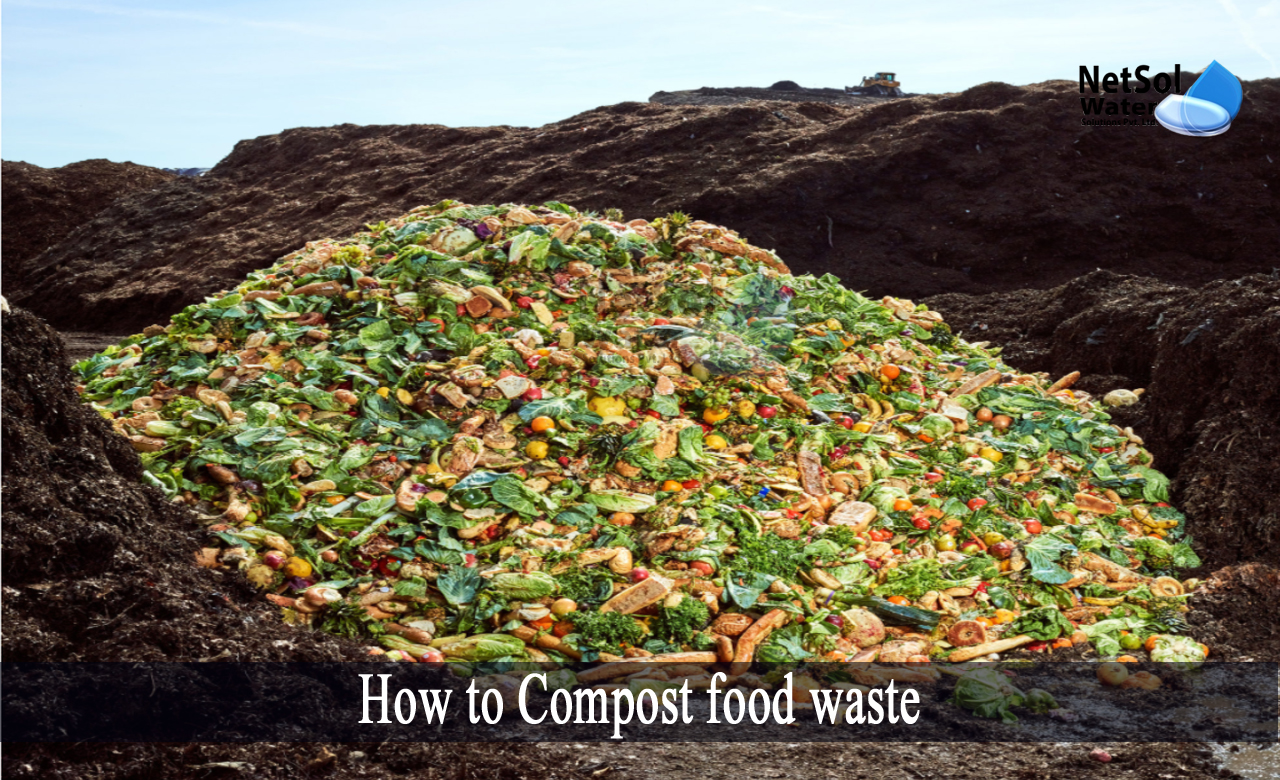Introduction
Food waste is a major problem. It is estimated that 40 million tonnes of it are disposed of in landfills annually, accounting for 15% of all municipal solid waste (MSW) produced.
Naturally, the massive amounts of food that are purchased, prepared, and then wasted throughout the year, contribute to this statistic. Despite growing requests to reduce food waste, the quantity that is discarded each year also rises.
There will always be some sort of waste product associated with the food we produce and consume, even though reducing food waste at all stages of the journey, from farm to plate must be the top focus. Fortunately, composting food waste gives us a practical option to utilize materials in a useful way.
How to compost food waste?
Composting can be done in many ways at home, and it isn't always necessary to have a garden. Composting and fermentation techniques can be broadly divided into the following categories:
· Vermicomposting
It utilizes a range of worm species to aid in the decay of waste. It can be done in small areas using special vermicomposting bins. Vermicomposting can handle modest amounts of animal-based materials, such as meat or dairy, so if your bin is carefully stowed away, the pest problem shouldn't be a problem.
· Standard Composting
By piling waste on top of each other, this technique kills germs and composts organic matter gradually. In general, it's challenging to compost food waste at home, including citrus and onion peels as well as meat, fish, dairy, and oils. This is due to the possibility that temperatures won't be high enough, to break down such waste into smaller piles, and the possibility that they'll draw pests like rats.
However, setting up this system in a garden or other outside place, doesn't cost much and requires little care.
· Commercial food waste composting
Commercial composting is frequently just a more elaborate form of traditional home or farm composting. Most techniques use the same aerobic processes as a typical compost pile.
Contrary to smaller piles, commercial-scale piles typically create enough heat, to compost food waste of any kind, including meat and dairy products.
· Composting in pits
Trench composting and pit composting are two names for this process. The composting materials keep chilly and damp in the summer and warm in the winter, which helps the decomposition process.
Simply bury your leftovers in a hole that is 12 to 14 inches deep. Attempt to do this by layering "green" and "brown" materials. Once the food waste is buried, anaerobic bacteria begin the breakdown process, and worms will aid in the digestion process.
You can either dig it out or utilize it in your yard once everything has decomposed, or you may plant something immediately on top of the pit!
· Food Waste Convertors
A food waste converter from Netsol Water aids in composting leftover food materials for people, who have a little amount of outside area, but may not want to invest a lot of time in the process.
This type of composting uses techniques including in-vessel composting, aerated static pile composting, vermicomposting, or windrow composting. The technique used depends on the amount of material to be composted, and the available area, among other things. Huge quantities of compost can be produced and sold to farmers.
Conclusion
Composting your kitchen waste is a simple technique to reduce the amount of waste your home generates, and is a good place to start when trying to live more sustainably.
What is the best thing, though?
You finish up with a wonderful soil amendment that gives your plants everything they require, to thrive happily and healthily!
How do we assist?
Netsol Water recognizes the importance of providing modern solutions for proper solid waste management.
We offer the most eco-friendly food waste convertors to properly manage food waste. Compost needs to be turned frequently, to ensure that the materials being broken down, have access to enough oxygen.
Netsol Water is Greater Noida-based leading water & wastewater treatment plant manufacturer. We are industry's most demanding company based on client review and work quality. We are known as best commercial RO plant manufacturers, industrial RO plant manufacturer, sewage treatment plant manufacturer, Water Softener Plant Manufacturers and effluent treatment plant manufacturers. Apart from this 24x7 customer support is our USP. Call on +91-9650608473, or write us at enquiry@netsolwater.com for any support, inquiry or product-purchase related query.



